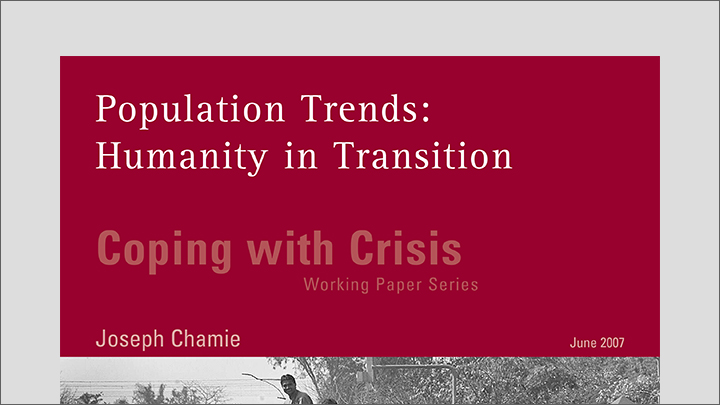 The rapid growth of population is perhaps the major demographic force challenging human well-being, development, the environment, and international relations and security.
The rapid growth of population is perhaps the major demographic force challenging human well-being, development, the environment, and international relations and security.
It is widely acknowledged that slower population growth provides countries with more time to adjust to future population increases. This in turn increases the ability and prospects of those countries to improve the quality of life of their citizens and foster economic growth and development, while at the same time safeguarding the environment and natural resources.
From the Introduction: During the twenty-first century billions of people are expected to join the world’s current population of 6.7 billion. Virtually all of these newcomers will be born in the less developed countries of the world, and many in the least-developed. In addition to this enormous growth of humanity, major global population trends and significant demographic differentials are interacting with powerful forces of globalization, resulting in mounting critical challenges to human well-being, social and economic development, international relations, and security. In particular, these challenges are impacting (1) social, economic, and environmental conditions and human well-being; (2) political participation and representation; and (3) international relations among countries and regions as well as between groups within countries.







